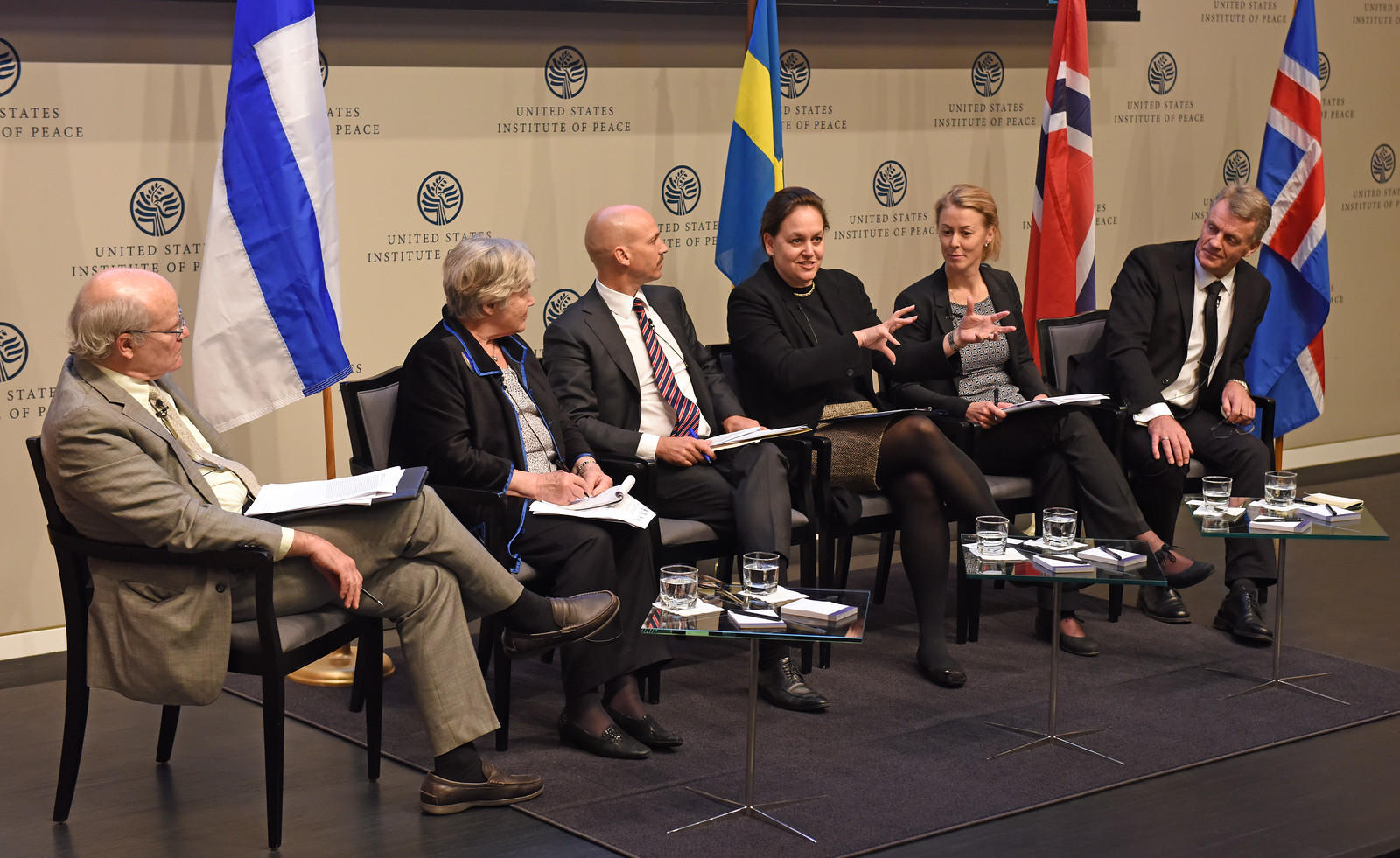Global Security: What Does Gender Have To Do With It?
Celebrating 15 Years of UNSCR 1325
The imperative for women to participate fully in decisions about peace and security won unprecedented recognition 15 years ago with the U.N. Security Council’s adoption of Resolution 1325 calling for members to craft national plans to accomplish that objective. Now, the new U.N. Strategic Development Goals declare women’s equality as a precondition to resolving many of the world’s national and regional crises. On Oct. 27, the U.S. Institute of Peace and the five Nordic Embassies hosted a discussion with Nordic representatives that have helped pave the way on the connections between gender and security.

Denmark, Finland, Iceland, Norway and Sweden are ranked as the top five countries in the 2014 World Economic Forum's Global Gender Gap Index ratings. The discussion at USIP explored the Nordic countries’ approach to gender equality and to global security more broadly. This event celebrated the 15th anniversary of the landmark UNSC Resolution 1325 and the underlying principle that gender equality is at the core of peace and security.
Continue the conversation on Twitter with #1325at15.
Speakers
Mr. Geir H. Haarde
Ambassador of Iceland to the United States and Former President of the Nordic Council
Ms. Elisabeth Rehn
Former Minister of Defense of Finland and Independent Expert of the High Level Advisory Group for the Global Review on United Nations Security Council Resolution 1325
Ambassador Dag Halvor Nylander
Norwegian Special Envoy to the Peace Process in Colombia
Captain Anna Björsson
Gender Advisor at the Swedish Armed Forces Headquarters
Brigadier Flemming Kent Vesterby Agerskov
Chief at the Regional Command South in Denmark and former Director of the Combined Joint Interagency Task Force Shafafiyat
Ms. Carla Koppell
Chief Strategy Officer at U.S. Agency for International Development
Ambassador Donald Steinberg, Moderator
President and CEO of World Learning

